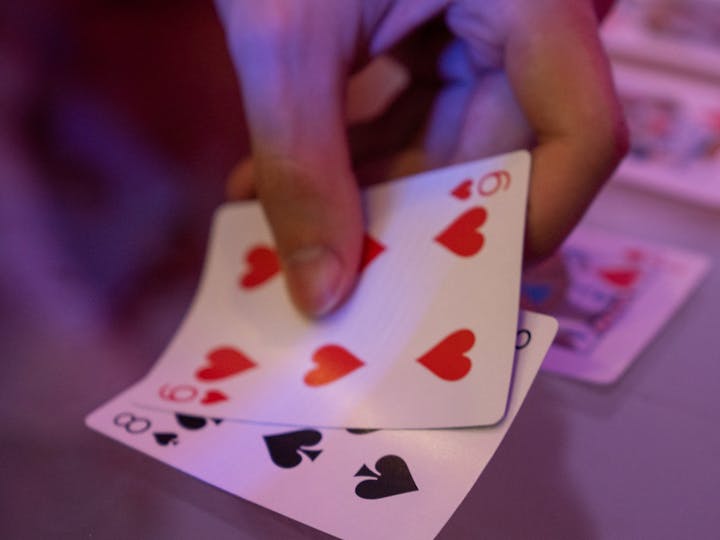6 Surprising Ways Card Games Make Your Decision-Making Better

Most of us play card games for fun. A quick round of solitaire after lunch, or a casual evening game with friends. But did you know that those same games might actually be helping you get better at your job?
Card games develop valuable skills that people often underestimate because they enhance decision-making abilities and stress management. There are six ways card games help you develop essential workplace skills in ways that most people do not recognize.
1. You Learn to Keep Your Cool
In card games, players frequently face situations when outcomes do not match their expectations. Your card choice might have been incorrect. An opponent could have executed an ideal series of moves.
The situation demands that you maintain your composure. Your ability to stay composed when things get tough inside the game extends to situations beyond the gaming environment.
Being calm allows you to gain an advantage at your job when you face tight deadlines or unexpected problems during meetings. Your ability to react improves. Your thoughts become more organized. You maintain your focus when minor errors occur. Your poker face from the card table gradually becomes your default reaction to work-related stressful situations.
2. You Get Better at Reading People
Card games don’t just involve logic. They also involve people. In games like rummy, spades, or bridge, paying attention to others is key. What are they holding back? Are they trying to bait you? Why did they discard that card?
You start learning how to pick up on subtle behavior. And that skill easily carries over into your work life.
Maybe it helps you notice when a teammate seems unsure about a task, even if they say “yes.” Or you start recognizing when a client’s tone doesn’t match their words. Reading between the lines becomes easier. And that means you’re better at handling communication, meetings, and collaboration overall.
3. You Make Faster, Smarter Decisions
Every card game comes down to quick decisions. Should you hold or fold? Play aggressively or safely? Stick to the plan or switch things up?
The more you play, the more you get used to making decisions on the spot and trusting them. This directly helps you at work. You’re not stuck overthinking small tasks. You can scan a situation, pick the best move, and go forward with confidence.
Some games, like poker, are especially good at developing this skill. Platforms like WPT Global give players a space to test their decision-making under real pressure. If you’re just getting started, trying it with a WPT Global bonus code can give you a few extra rounds to learn without added stress.
To know more about these bonuses, you can also refer to online help. There are websites that guide you in understanding bonus structures better and using them more effectively for a smarter experience.
4. You Start Thinking Long-Term
In a lot of card games, winning isn’t about the next turn. It’s about the whole game. One bad move now might help you later. A strong hand today might cost you a better one tomorrow.
This way of thinking becomes valuable in your career, too. You start seeing the bigger picture.
Instead of rushing to finish every project, you begin thinking about how this work fits into a larger goal. You don’t just want to do it fast. You want to do it well. And when opportunities come your way, you’re able to look beyond short-term wins and focus on what really matters for your growth.
5. You Become More Comfortable with Risk
Card games involve uncertainty. No one sees the full picture, and no outcome is guaranteed. You learn to take chances, not based on luck, but on what you know and how you feel in the moment.
This kind of practice is useful in business. You might not always have all the details when you pitch a new idea or take on a new client. But you’ve trained yourself to weigh risk and reward carefully.
It’s not about being reckless. It’s about being ready to move even when things aren’t 100% clear and being okay with that.
6. You Build Patience and Discipline
Card games aren’t always fast-paced. Sometimes, they test how well you can wait for the right moment, the right hand, or the right move. You can’t rush a win, and forcing a play often leads to mistakes.
This habit of waiting for the right opportunity teaches patience. And that’s a skill many professionals struggle with. Whether you’re waiting for a project to pick up speed or holding back in a meeting to speak at the right moment, patience helps you stay composed and thoughtful.
It also builds discipline. In games, you learn not to act on impulse. At work, this translates to sticking to plans, controlling reactions, and staying committed even when progress feels slow.
Final Thoughts
Card games are more than just a way to relax. They’re low-key training grounds for the real world. Each game teaches you how to stay focused, think ahead, and handle pressure with grace. So the next time you’re playing a quick round of your favorite card game, remember you’re not just passing time. You’re building habits and skills that show up where it matters most: in your everyday work.
